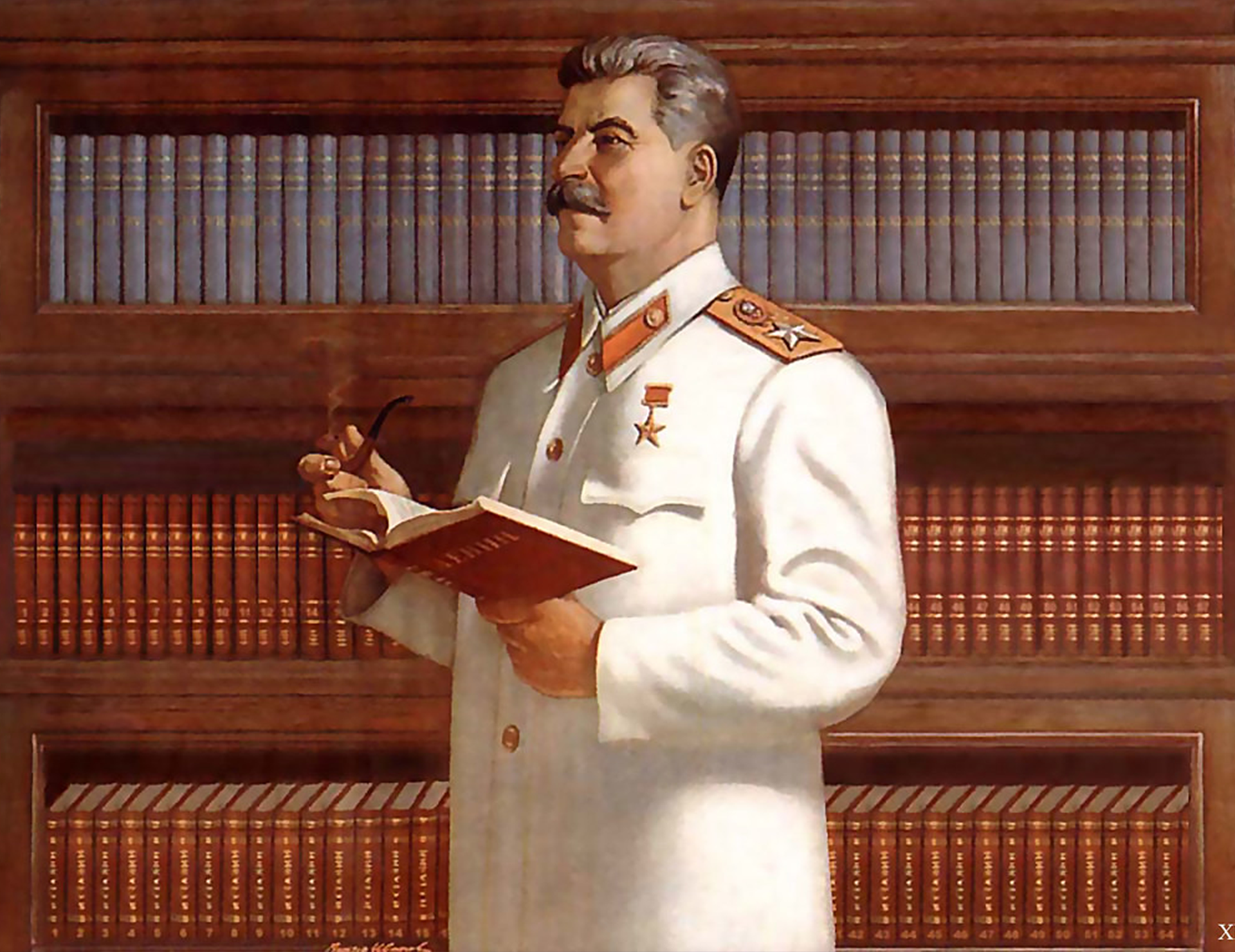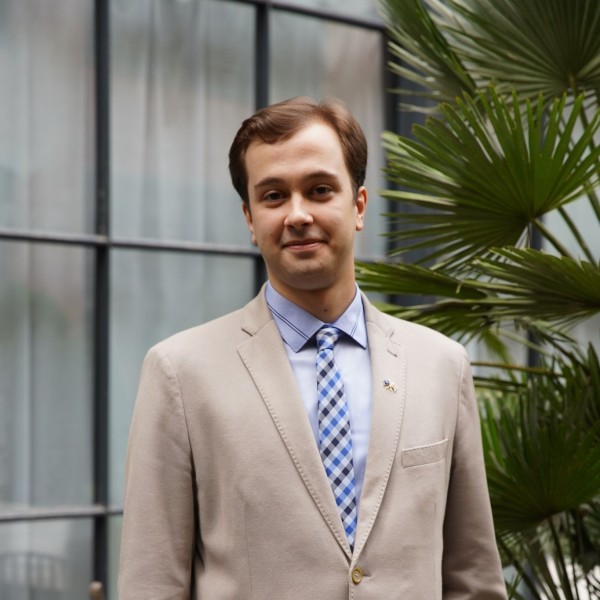Re-Stalinization of Russia: Cult of Personality Revived

Although Russian President Vladimir Putin launched a full-scale invasion of Ukraine in February 2022 with the goals of “denazification” and “demilitarization”, his regime has pursued the rehabilitation of the Soviet dictator Joseph Stalin alongside a quasi-religious cult of the great patriotic war and re-Sovietisation of Russian society. These policies had strengthened the integration of Soviet and Russian identities, and “legitimized” Putin’s genocidal war against Ukraine while facilitating war crimes against Ukrainians.
Since he first came to power in 2000, Russia under Putin has experienced a massive state-sponsored Re-Stalinization campaign through the media, schools and universities, movies, academics, military propaganda, and revision of history. This state-sponsored indoctrination led to the rewriting of Russian history where Stalin’s crimes were excused and downplayed while he was praised for defeating the Nazis, building a new empire, and transforming the USSR into a superpower with nuclear weapons the West feared and respected.
What unites Stalin and Putin, besides their megalomania, is their obsession with not losing Ukraine. The Russian Empire and USSR attempted their utmost to completely destroy Ukrainian identity through denationalization, Russification, and genocide of Ukrainians. The Holodomor (artificial murder famine) in 1932-1933 murdered four to five million Ukrainians which over 90 percent of Ukrainians believe was a genocide. Putin’s Russia denies this, claiming the Holodomor was invented and promoted by Western intelligence agencies as part of the Cold War against the USSR in the 1980s.
Under the guise of battling neo-Nazism and protecting the historical and cultural memory of the great patriotic war, the Russian Duma adopted contentious "memory legislation" in 2014, prohibiting debates about crimes and horrors carried out throughout the Stalinist period or and denying the comparability of Stalinism and Nazism. However, looking at how historians and scholars addressed and confirmed Stalin’s essential part in the mass crimes and Great Terror, Putin's Russia cannot escape from these crimes, even though the majority of the Russian society continues to hold positive views of Stalin. Indeed, this differentiates them from Ukrainians, a majority of whom view Stalin as a criminal. In 2019, the Levada Center found that 70 percent of Russians approved of Stalin's role in their history.
Stalin's mass murder of tens of millions of people in the USSR, including Russians, is inconsistent with Putin's concept of restoring Russia's glory through the glorification of a tyrannical strongman. In fact, the Kremlin's propaganda mouthpieces say that Russia now requires a powerful ruler to confront the "Satanists" and “Russophobes” from the West. Putin's imperial nationalistic ideology, totalitarian dictatorship, and goal of imperial expansion have become critical for influencing the memory of Russian citizens in the wake of re-Stalinization in Russia.
Putin’s nostalgia for the Tsarist Russian empire and the Soviet Union, which encompasses the reigns of Ivan the Terrible, Peter I, and Stalin, alliance with the Russian Orthodox Church in Russian history, and his ambitions to enter Russian history as the so-called “gatherer of Russian lands” has expanded his scope of disinformation and propaganda. Since 2020, when the Russian constitution was changed to make Putin de facto life president, a totalitarian dictatorship has destroyed independent media and imprisoned journalists and activists with up to 15 years in prison if they criticize the war against Ukraine.
As Russia has transitioned through monarchical, totalitarian, and authoritarian systems throughout its history, Putin’s efforts to revive Stalin’s personality cult have revived support for an imperial nationalistic image of the “great Russian empire” and “the great patriotic war” among the Russian people. As in the 1930s and 1940s with the USSR, also in the 21st century, the establishment of a re-Stalinized Russia, with the goals of imperial expansionism, would be impossible and not sustainable without the support of the majority of Russian society. Besides collective memory and the goal of territorial expansion, there is also the decade-long humiliation in the 1990s when Russians felt they were humiliated and disrespected by the West, a feeling that assisted Putin’s rise to power.
As support for Stalin’s personality cult began in the 2000s, re-Stalinization in Russia was also reflected in the rise of anti-Western xenophobia and anti-Ukrainian de-humanising discourse by state-owned media. The promotion of the image of a macho strongman was promoted by Putin throughout the nearly quarter of a century Putin has ruled Russia. Indeed, by convincing the Russian people of the need for such a strongman in Russia, Putin cemented himself at the pinnacle of the power pyramid in the Kremlin.
The steps taken to promote Stalin’s personality cult in Russia were strongly backed by the former Soviet siloviki (security forces) who had with Putin transformed Russia into a militocracy. They both viewed Stalin as an ideal political leader and "an effective manager", who restored order and "glory" to the Russian nation. Putin's re-Stalinization campaign requires a cult of war and domestic and external adversaries in order to survive. Putin’s power vertical resembles Stalin’s efforts to consolidate and maximize his political power in the inner circles of the Russian elite in a covert manner. The growth of Russian imperial nationalism has impacted all sectors of Russian society.
History shows that the vertical of power and rule by an iron fist in Russia was followed by repression, wars, and the establishment of a dystopian, totalitarian system, in which society becomes complicit in the making of the system. Domestic opposition, foreign terrorist threats, and anti-Western xenophobia have always been weaponized by the Russian state to distract attention from abuses in human rights, the poor performance of the economy, and international isolation.
The old saying in the Russian empire said “I don't care about Russia; I have a Tsar”. One could not describe the current situation in Russia better than this quote as the people in charge are doing their utmost to re-programme the Russian people into agreeing on the expansion of the state’s authority and size will lead them to the regaining of Russia’s “historical greatness”, and accepting the regimes anti-humanist ideology. Re-Stalinization, which has been taking place for almost three decades, has given birth to another, possibly more dangerous and ruthless ideology, that can be framed as Putinism, which is an amalgam of imperial nationalism, religious fundamentalism, neo-medievalism, and Messianism.
Putinism has transformed the Russian state into a Leviathan, fanned a personality cult; launched widespread political oppression, indoctrinated Russian society; pursued an aggressive foreign policy; weaponized religion, and committed war crimes. In the pursuit to regain the “former glory of the Russian empire”, Putinism should be understood as a modernized form of Stalinism which can lead to more severe and apocalyptic consequences than in the 20th century. The Kremlin’s war against Ukrainians is not only about Ukraine, it is about defending and preserving Western democracy and the liberal international order that has existed since 1945 from the anti-Western axis of evil that unites Russia, Iran, and North Korea.







